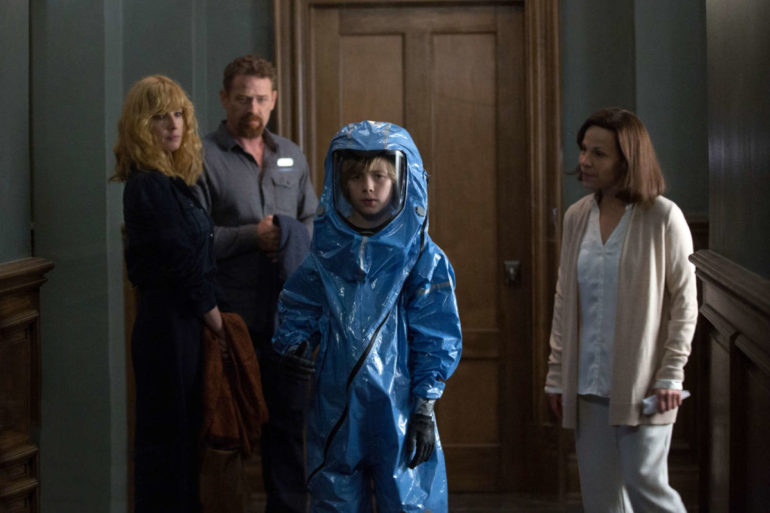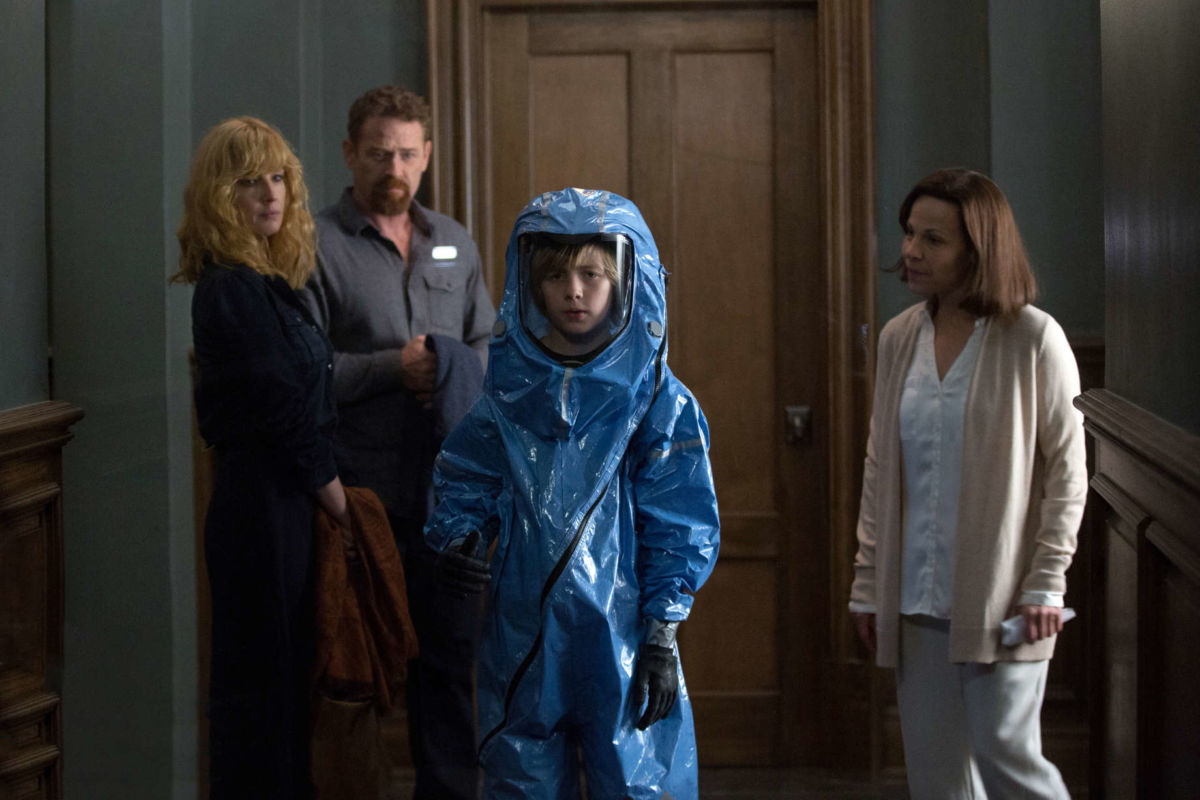The Boy in the Plastic Bubble as a supernatural horror is an elevator pitch that should print money all on its own, which is probably why Netflix leapt on Ciaran Foy’s Eli to bring it exclusively to their streaming service after Paramount basically gave up on it. With a lack of coherent storytelling, bafflingly inconsistent characterisation, and empty scares, Netflix probably should have, too.
A young boy by the name of Eli is confined to living in a hazmat suit when outside or in his own little bubble when indoors. Exposure to the elements brings him out in painful hives, leading to his parents investing heavily in an experimental treatment at a mysterious manor led by an equally peculiar doctor. Following a seemingly successful first treatment, Eli begins to question everything around him when he starts seeing ghostly figures.
What follows is a briefly compelling mystery, the audience being aware that something is off but never exactly sure what. Is Eli really seeing these apparitions, or is his treatment leading to a morbidly creative mind? The emotionally restrained doctor is also a source of intrigue, the movie reticent to let you in on what she’s like outside of the operating room and the unnervingly friendly smiles.
This initially interesting premise flatlines when the attempts at scares start racking up in rapidfire succession without almost room to let them breathe — it’s just suddenly a very loud and brash movie without much patience for building the required tension. Every night brings a familiar, limp attempt at a scare before we move on to Eli warning his parents that something’s wrong, them taking no heed, and then repeating the process a few more times until any tension or intrigue is, fittingly, sterilised.
It doesn’t help that Eli’s volume button seems to be broken, Charlie Shotwell’s performance as the troubled young boy rarely going below eleven. While it’s good to see a young actor give their all, Shotwell’s constant intensity compared to everyone else sticks out like a sore thumb. Equally irritating is Sadie Sink’s night-time visitor, who is so edgy that it’s a wonder she doesn’t plummet after every condescending remark. Lili Taylor is dependable as always yet unremarkable as the doctor, while Max Martini and Kelly Reilly struggle with the flip-flop script as Eli’s suffering parents.
Once the scares have become predictable and disaffecting, Eli has little to offer beyond an eleventh hour plot twist thrown in to try and make it stick in the mind beyond its mad scientist shtick. With almost no hint of its grand reveal beforehand, Eli’s major twist comes completely out of leftfield and feels unearned, just like its scares. It’s a laughable turn into early 2000s horror territory that stamps all over the way the characters have been established, particularly Eli’s parents.
Eli represents yet another strange acquisition by Netflix from the old media — it’s becoming clearer and clearer why these projects are getting dumped on streaming services. Eli probably should have stayed in a bubble.
Some of the coverage you find on Cultured Vultures contains affiliate links, which provide us with small commissions based on purchases made from visiting our site.



